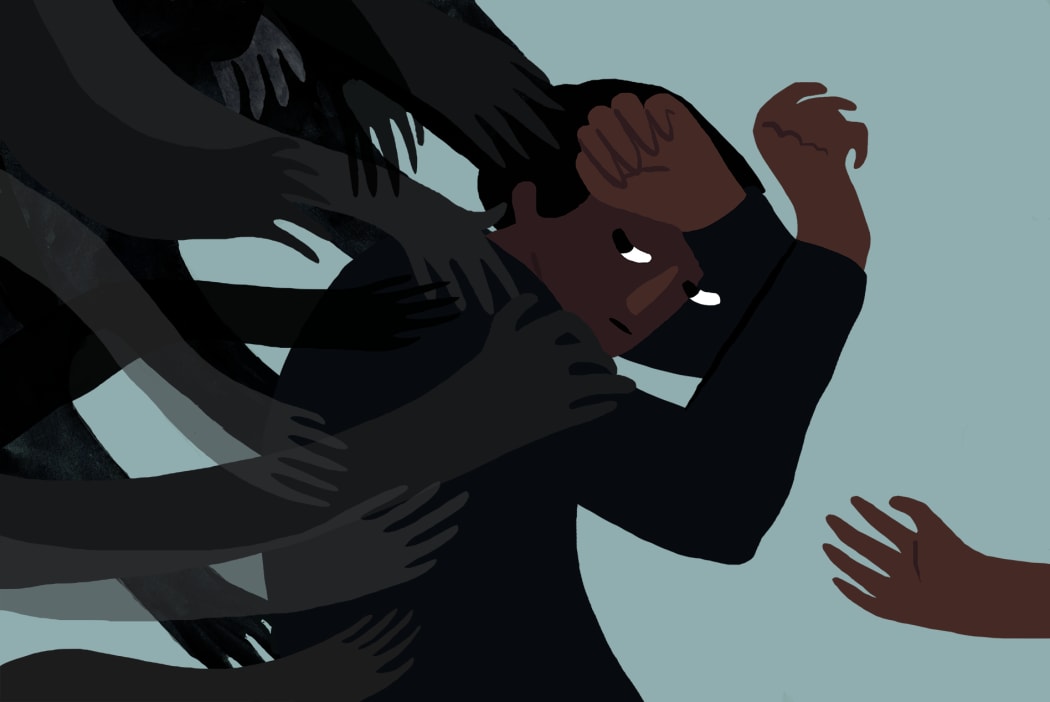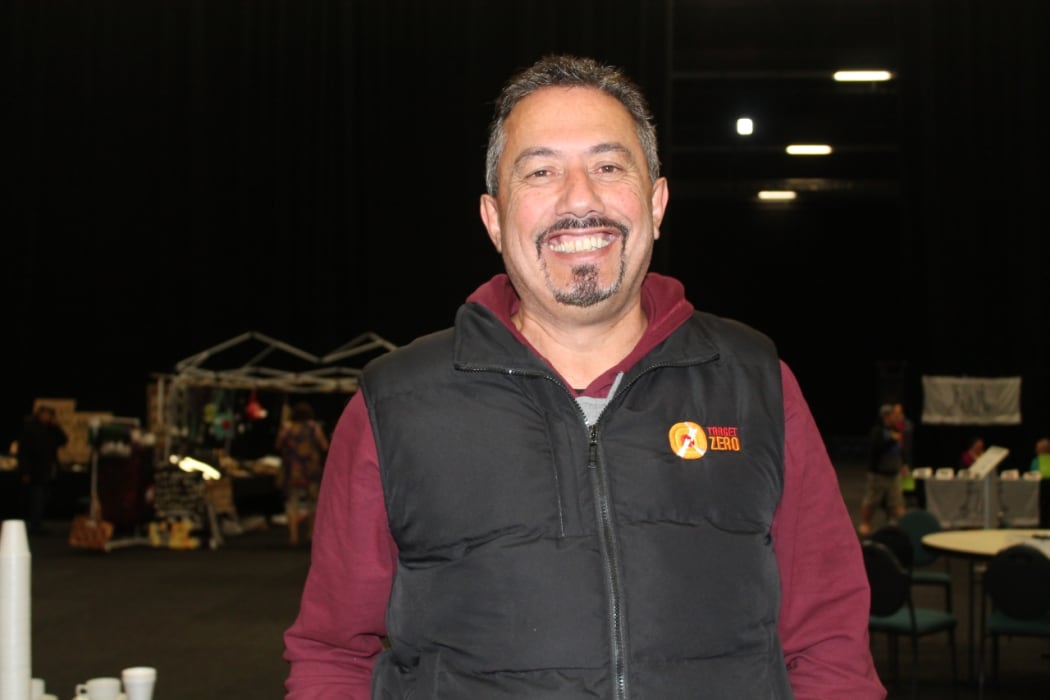A recent study shows the suicide rate among young Kiwi men is double that of young Australian men. One mental health activist says radical changes are needed to bring it down.

Photo: Illustration: Giselle Clarkson
Clinical professor of psychiatry John Snowdon published a paper this month comparing the suicide rates in New Zealand and Australia over the past 50 years. One of the most interesting findings was the markedly higher rate among young New Zealanders.
The 2009–13 peak male suicide rate was at age 20–24 years was 29.7 per 100,000 in New Zealand, two times the rate recorded among Australian males of the same age.
According to the Ministry of Health, for every female suicide in 2014, there were 3.1 male suicides in New Zealand.
But professor Snowdon points out that there’s no clear difference in prevalence of mental disorder between men and women so doesn’t believe that’s a cause.
“People are really tortured in their minds and they want to get away from that feeling of anguish. Is that mental illness? Well, it’s mental disorder but I don’t think of it the same way as bipolar disorder or schizophrenia. It’s not a mental illness, it’s a psychological state. It’s a reaction.”
“Maybe it’s appropriate to give them anti-depressants or medication, but surely the main thing is to find ways to get rid of that anguish.”
New Zealand comedian turned mental health activist Mike King agrees and sees fundamental failures in both the mental health leaders’ and public’s attitudes when dealing with youth suicide.
“Our suicide prevention model is a medical model based around mental unwellness, whereas what I’ve been finding [is that] it’s not so much depression that’s killing [young people] - it's disconnection.”
The root of this disconnection is thinking that asking for help is a weakness.
“I could throw $50 billion at the suicide industry tomorrow and I could have the 50 best suicide prevention programmes in the world adopted in this country and guess what? There will still be 550 people taking their own lives this year because until the nation changes their attitude, nothing will change.”

Photo: RNZ / Justine Murray
King says many adults are still teaching young people, especially boys, detrimental lessons right from childhood, which become too much to handle in their young adulthood years,
“I’m at a campground right now and you hear it: ‘Get up, stop crying, don’t do that, God you’re useless!’ All of these little messages that we send out to our young boys ﹘ which in isolation we can all justify ﹘ but five negative comments a day, 365 days a year for 15 years … that’s a hell of an inner critic that you’re building up.”
“You’ve got a whole lot of young boys out there walking around thinking they’re useless, they’re hopeless, no one loves them and no one cares about them. And they’re not allowed to share that with anybody.”
Battling mental anguish and hurt on their own is what’s killing young people, says King, and adults need to start questioning their approach.
“Why are we criticising them? Why are we throwing admonishment at young people when the problem isn't the young people, it’s my generation.”
“It’s the role modelling that’s broken. If we became more empathetic and more sympathetic, things would change. Until we do, the government is just tipping money down a giant toilet.”
The government has put $25 million towards strategies to prevent suicide, but King is not convinced it’s working at all. New Zealand consistently ranks among the worst in the world for youth suicide. A recent report found we had the highest rate among 34 OECD countries for those ages 15-19.
“We don’t have any suicide prevention in New Zealand. It is all intervention and post-intervention; halfway down the cliff when there’s already problems established or at the bottom of the cliff as the ambulance is driving away,” King says.
He’s critical of the fact at least 50 percent of people who take their own lives have no contact with mental health services. Most of them are given a mental health diagnosis post-suicide because it falls within the current funding model, he says.
Professor Snowdon also compared suicide rates among indigenous and non-indigenous populations and says the persistently high suicide rate of young Māori remains a concern.
The Māori youth suicide rate is 2.8 times the non-Māori rate and a 2016 report by the Ministry of Social Development points out that since 1996, suicide death rates have generally declined for non-Māori, but there is no obvious trend for Māori.
“New Zealand has developed a national suicide prevention programme which includes a programme aimed specifically at the Māori population, but it hasn’t worked. If the figures are staying high in spite of all that they’re doing, clearly they haven't got it right yet,” says Professor Snowdon.
King says the role modelling young Māori are getting is especially problematic, embedded in a “Once Were Warriors-like mentality”.
“It is uncool, it is un-staunch, it is a weakness to ask for help. Therefore, they are carrying this stuff around by themselves and it’s getting too much for them.”
“Our kids don’t need to harden up and stay staunch; they need to open up and be offered love.”
Last year, researchers carried out a trial of an intervention delivered by Māori for Māori who had presented to hospital with intentional self-harm in New Zealand.
The results were promising, showing that the intervention decreased hopelessness at three months and significantly decreased hospital representations for any reason at one year. The authors pointed out that at its heart, the intervention was an attempt to address belonging.
“What’s at the centre of all suicidal thinking? Hurt. They’re just people who are hurting and want to feel loved and want to feel needed. They’re not drama queens, they’re not attention seekers, they’re not cowards; they’re just people that are hurting,” says King.
One of the greatest let downs of the country is our failure to ask young people themselves what would help, he says. Rather, we’ve relied on leaders who have, so far, got it wrong.
“We’ve got eight and nine-year-olds in this country taking their own lives. Don’t tell me they don't understand what hurt and distress is.”
“Instead of having all these academics going in there and offering solutions, why don’t we ask the kids? Why don't we ask them what they want? Don’t ask their parents, don't ask their community leaders - ask the young people.”
***
Interactive data visualisation: Suicide statistics 2011-2015
- Northland: 28
- Waitemata: 63
- Auckland: 48
- Counties Manukau: 47
- Waikato: 49
- Bay of Plenty: 32
- Tairawhiti: 13
- Lakes: 10
- Taranaki: 19
- Hawkes's Bay: 29
- Whanganui: 8
- Mid Central: 27
- Wairarapa: 9
- Hutt: 16
- Capital and Coast: 30
- Nelson Marlborough: 18
- West Coast: 7
- Canterbury: 61
- South Canterbury: 8
- Southern: 42
Male / Female
NEED HELP?
If you need to talk to someone about your own mental health, try these helplines. If it is an emergency, call 111.
Depression Helpline - 0800 111 757
Suicide Crisis Helpline (aimed at those in distress, or those who are concerned about the wellbeing of someone else) - 0508 828 865 (0508 TAUTOKO)
Youthline - 0800 376 633, free text 234 or email talk@youthline.co.nz

